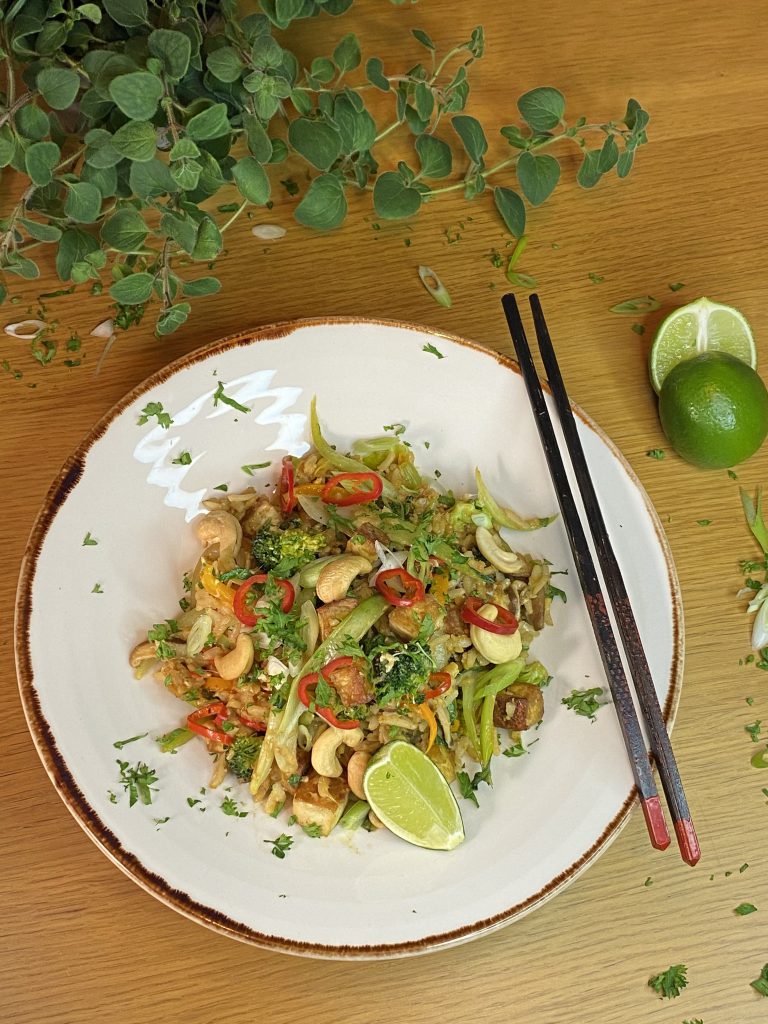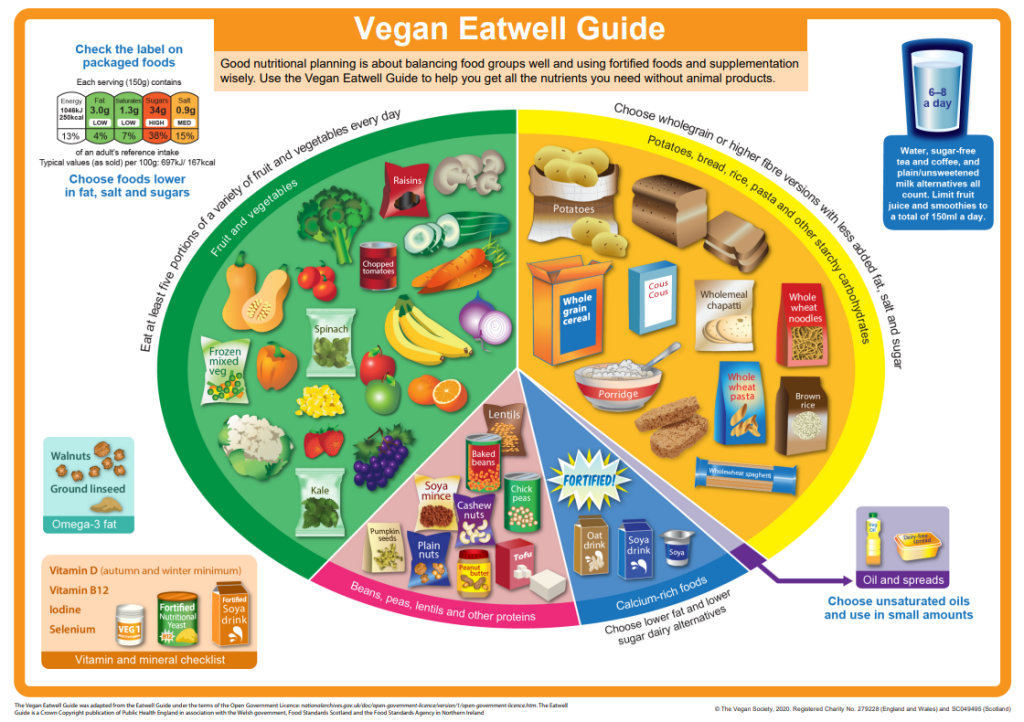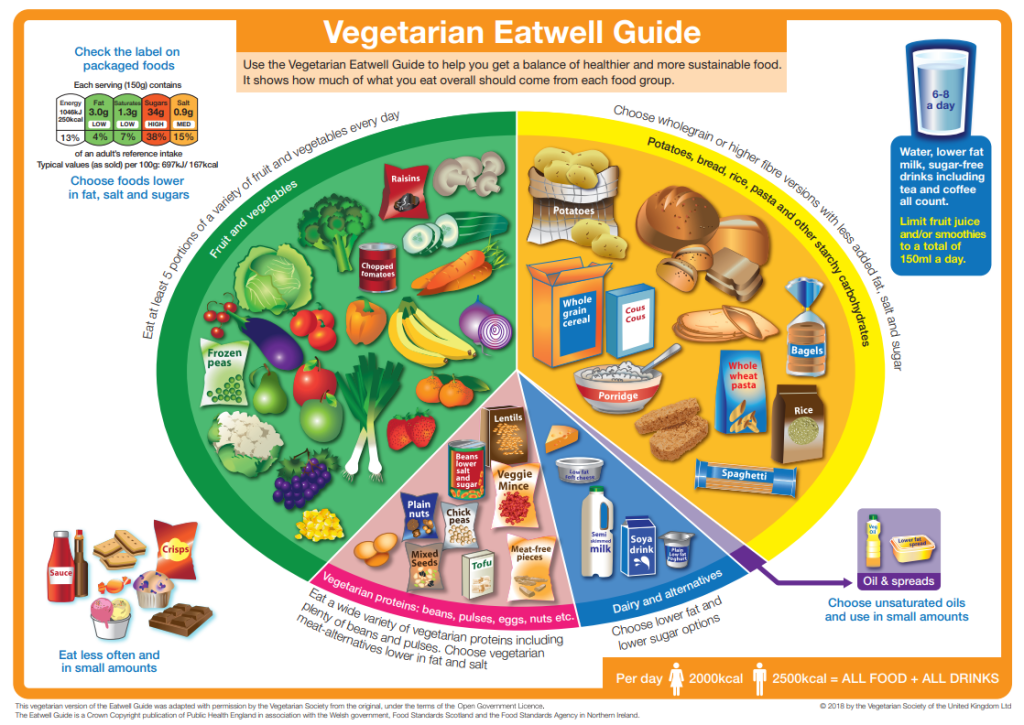
Plant-based diets are those where either minimal or no animal products are eaten and includes vegetarian and vegan diets. There are lots of reasons why people may choose to eat this way e.g., animal and environmental welfare. Food fuels your body so you can do the activities you enjoy, and animal products contain lots of nutrients such as protein, iron and B12. It’s important to find nutritious swaps when choosing plant-based foods. Plant-based diets tend to be higher in fibre and this might trigger bowel stoma symptoms like pain and looser stools. If you have a bowel stoma you may be unsure if your gut can digest a plant-based diet very well. Everyone is different so we’ve rounded up our top tips for going plant-based while living with a bowel stoma.
Note: This advice doesn’t replace tailored diet advice from your healthcare professional. If it’s been less than 8 weeks since your surgery, please read our thorough Nutrition Guide that discusses foods that may cause symptoms for those with bowel stomas.
Trigger foods
Some with bowel stomas have ‘trigger foods’ that may cause symptoms like bag ballooning, higher fluid losses, and possibly pseudo-blockages. If you have a colostomy near the end of your gut, you may be pleased to know this is less likely. Everyone’s ‘trigger foods’ are different although there is a pattern of high fibre and/or tough to chew foods e.g., brown rice, vegetable and fruit skins, and whole nuts. The amount of these foods that your gut digests well can vary too. The advice here is a guide for you to try and then monitor your symptoms – you know your body best and so please listen to how you feel. Enjoy experimenting!

Download a full copy of the Vegan eatwell guide.

Download a full copy of the Vegetarian eatwell guide.
Building balanced meals
At each of your main meals …
- Aim for each of these to make up a third of your plate:
- Your carbohydrate e.g., rice, potatoes, pasta, noodles
- Your protein e.g., tofu, tempeh, soya mince, lentils, beans
- Your vegetables e.g., carrots, peppers, baby sweetcorn
- Include some minimally processed fat e.g., olive oil you cooked some tofu in or a dollop of yogurt on top of a lentil curry
For breakfast, your meal structure might look slightly different …
Vegetarian breakfast examples:
- 2-3 scrambled eggs and finely chopped tomato served with 2 slices of brown toast with omega-3 fortified spread
- Yogurt topped with berries and 1 tbsp of chia seed
- Unsweetened pancakes topped with goats cheese then a small glass of smooth orange juice to drink
Vegan breakfast examples:
- Porridge made with soya milk then topped with 1 tbsp of ground linseed
- 2 tbsp of smooth peanut butter and a sliced ripe banana on a white bagel
Our green or black forest gateau smoothies (swap the animal milk and yogurt for e.g. soya milk and yogurt).
Nourishing plant-based swaps
| Protein foods that: aren’t vegan OR can be tricky to digest for those with a bowel stoma | Easy to digest | Generally manageable when chewed very well |
|---|---|---|
| Meat, chicken, fish |
Eggs, tofu, tempeh, falafel, hummus, bean dip (pureed beans with your choice of spices), nut butters, soy mince, Quorn and similar items |
Chickpeas, beans, lentils, whole nuts |
| Nuts and seeds |
Nut butters like peanut butter, ground nuts, chia seeds and soft seeds e.g. de-shelled sunflower seeds |
Whole nuts |
| Animal milks, yogurts, and cheeses e.g. cow’s milk |
Soya milk and yogurt, oat milk or nut milks and yogurts, cheeses labelled ‘vegan’ or ‘dairy free’
Note: Choose products that say added B12, Vitamin D, and Calcium – some may have added iodine too |
Plant-based yogurts and cheeses that contain fruit chunks |
For information on suggested portion sizes, please see our Nutrition Guide.
Key vitamins and minerals
There are some vitamins and minerals that people with bowel stomas (including those with inflammatory bowel disease) may be deficient in. They can also be harder to have enough of when following a plant-based diet. We’ve put together some handy ways to get enough of these nutrients.
| Key nutrient for those with bowel stomas following a plant-based diet | Role in your health | Some signs of deficiency | Vegetarian and vegan diet sources* |
|---|---|---|---|
| Iron | Keeping your red blood cells healthy, maintaining your immune system | Fatigue, paleness, brittle nails, thinning hair | 2-3 portions a day of any of these:
Eggs, tofu, tempeh, nuts, seeds, lentils, beans, fortified breakfast cereal Extras: dark green vegetables e.g., broccoli, spinach, kale |
| B12 | Keeping a healthy nervous system, helping produce DNA (the ‘building blocks’ for all your cells) | Fatigue, paleness, poorer memory, a swollen and brighter red tongue, difficulty becoming pregnant | 2-3 portions a day of any of these:
Eggs, animal-based milk and yogurts, plant-milks or yogurts with ‘B12’ on the nutrition label, vegan spread, nutritional yeast, yeast spread, fortified breakfast cereal |
| Zinc | Maintaining a healthy immune system, helping you taste and smell, wound healing, helping produce DNA (the ‘building blocks’ for all your cells) | Diarrhoea, sores on the eyes and skin, hair loss, reduced appetite, impotence | 3-4 portions a day of any of these:
Tofu, baked beans, pumpkin seeds, chia seeds, ground linseed, cashews, animal milk or yogurt, chickpeas, quinoa, brown bread, fortified breakfast cereal |
| Vitamin D | Maintaining a healthy immune system and your muscles, building and keeping strong bones | There aren’t always obvious signs of deficiency; some get muscle weakness, people can develop weakened and painful bones | 2-3 portions a day of any of these: Eggs, fortified milks and yogurt (animal and plant-based), fortified breakfast cereals + a daily supplement of 10 micrograms of vitamin D3 (vegan options available) |
| Calcium | Maintaining strong bones and healthy muscles | This may only be found if you break a bone or have a type of test called a ‘DEXA’ scan | 3-4 portions a day of any of these:
Animal milks, yogurts and cheeses, fortified plant-based milks and yogurt, tofu, tempeh |
| Omega-3 fats
The 3 types are ALA, DHA, and EPA |
Heart, brain, eye, lung, and immune system health | Rough and scaly skin, dermatitis | 2 portions a day of any of these: Sunflower seeds, chia seeds, ground flaxseed, rapeseed oil, soya spread
+ A daily 250 milligram dose of a combined DHA and EPA supplement (vegan options available) |
| Iodine | Producing thyroid hormones which help with your metabolism and energy levels | In severe cases an enlarged thyroid becomes visible on the neck | 2 portions a day of any of these:
Animal milks or yogurts, fortified plant-based milks and yogurts OR 1 portion a day (2 sheets) of nori seaweed OR a supplement that contains no more than 150 micrograms of iodine a day Note: Taking seaweed or kelp supplements can cause iodine overdoses |
| Selenium | Multiple roles such as fertility and a functioning immune system | There are no outward signs of selenium deficiency | 1-2 portions of any of these at each meal:
Rice, pasta, lentils, baked beans, oats, yogurt, cottage cheese OR Have 2 Brazil nuts a day (please chew very well) |
*Some of these foods may need to be chewed very well or your gut may find them difficult to digest. Please download our Nutrition Guide for detailed information. Keeping a food and symptom diary can also be useful which I talked about in a previous blog, A stoma symptom and food diary for ostomates.
Dietitians recommend aiming to get all your nutrition needs from food and drink where possible. You can usually better absorb the nutrients from foods and drink rather than supplements. There can also be phytonutrients which are naturally occurring chemicals in what you eat that are also thought to contribute to good health.
If from the information and advice above you’re unsure if a plant-based diet or taking a supplement is right for you, please speak with your GP, consultant, or registered dietitian. Your doctor can refer you to an NHS dietitian or you can also self-refer to a private practice dietitian via The Association of UK Dietitian’s website.
Useful resources
The Recipe book, Nutrition, and Hydration guides from our Ostomates Kitchen
The Association of UK Dietitian’s plant-based guides:
Vegetarian, vegan and plant-based diet: Food fact sheet
The BDA’s Sustainable diet project
Registered Dietitian Laura Coster is passionate about helping people feel confident in managing their health and finding joy in the food they eat. Laura is an NHS and private practice dietitian who sees patients one-to-one and presents nutrition workshops around the UK. She has held four senior dietitian posts in the NHS and has considerable experience working with patients who have undergone stoma-formation surgery.

